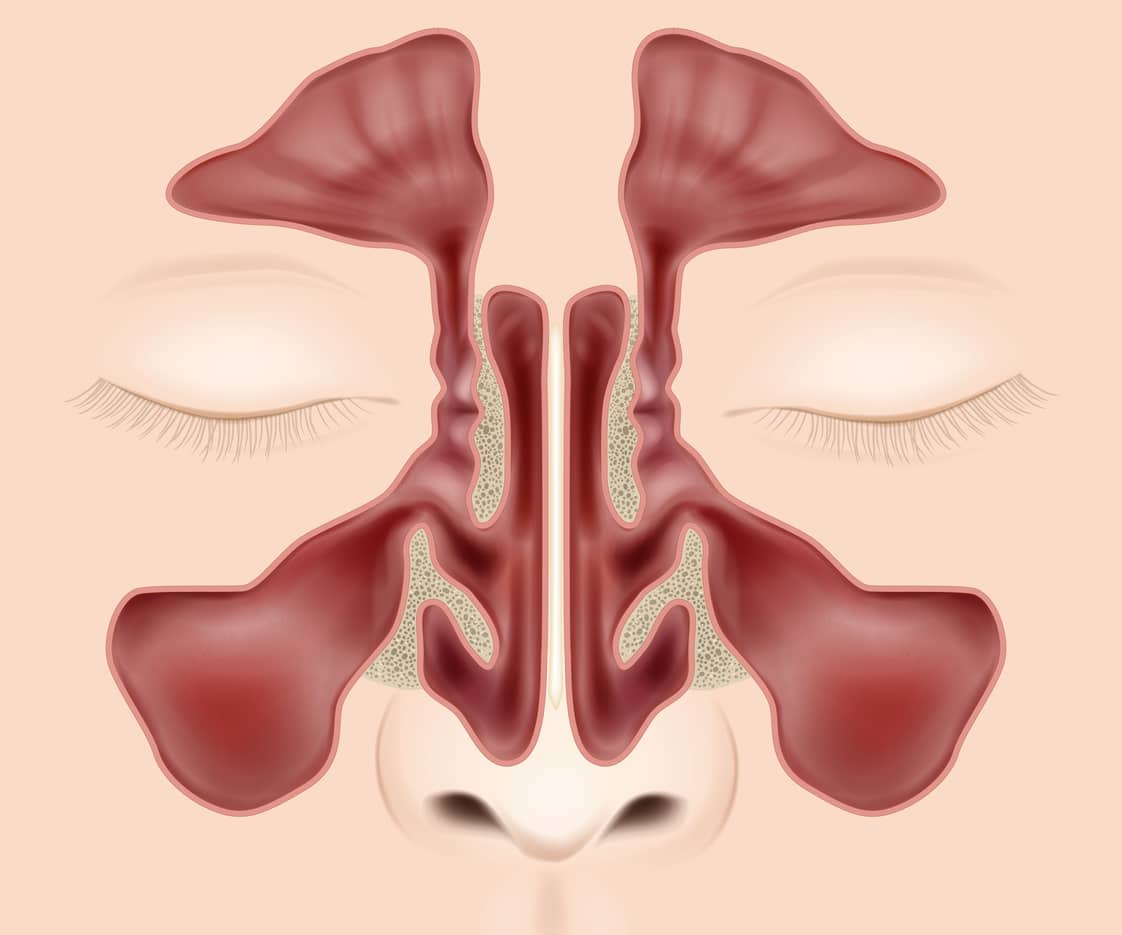The chillier season is fast approaching and, unfortunately, that means cold and flu season is also on its way. If you tend to get a cold or flu during the winter, you might also be familiar with a sinus infection—often arising after the original illness.
Sinus infections bring along uncomfortable symptoms including facial pressure, nasal congestion, postnasal drip, toothache and a fever. Sinus inflammation can stem from viruses, bacteria, allergies, structural issues in the nasal passages or any combination thereof. Let’s examine two of those causes, viruses and bacteria, and how you can manage each.
Viral Sinus Infections

Viruses are microscopic agents that need a host cell to replicate. Once inside a cell, a virus can take it over to create more copies of itself, sometimes damaging or killing the host cells in the process. This is what leads to illnesses like colds, flu and sinus infections.
Viral sinus infections typically arise after a cold or flu and resolve themselves in about 10 days. During this time, you can ease your symptoms with short-term decongestants, antihistamines or saline nasal rinses. Over-the-counter and home remedies provide significant relief while your body fights off the infection. Helpful home remedies include getting plenty of rest, facial steaming to loosen congestion and drinking plenty of water or warm Cha Cha Teahouse teas to thin mucus.
Bacterial Sinus Infections
Bacteria are single-celled organisms, some of which are beneficial for your health, like those found in yogurt and kombucha, while others can cause illness. When harmful bacteria infect your sinuses, it can lead to long-lasting or more severe symptoms. Bacteria are the leading cause of chronic sinus infections (lasting three months or longer).
In bacterial cases, a healthcare provider may prescribe antibiotics to effectively treat the infection and prevent complications. Chronic bacterial sinus infections often require more extensive care, sometimes including minor procedures like Balloon Sinuplasty or Functional Nasal Endoscopy (FESS) to improve sinus drainage.
Reducing the Risk of Recurring Sinus Issues
If sinus infections keep returning, there may be an underlying issue contributing to the inflammation, such as allergies, nasal polyps or structural abnormalities in the nasal passages. Treatments like a Balloon Sinuplasty and FESS can help open blocked sinuses, reducing inflammation and decreasing the frequency of infections.
For guidance on preventing and managing sinus infections, schedule a consultation with one of our trusted ENT specialists at Southeast Texas Ear, Nose & Throat, LLP.